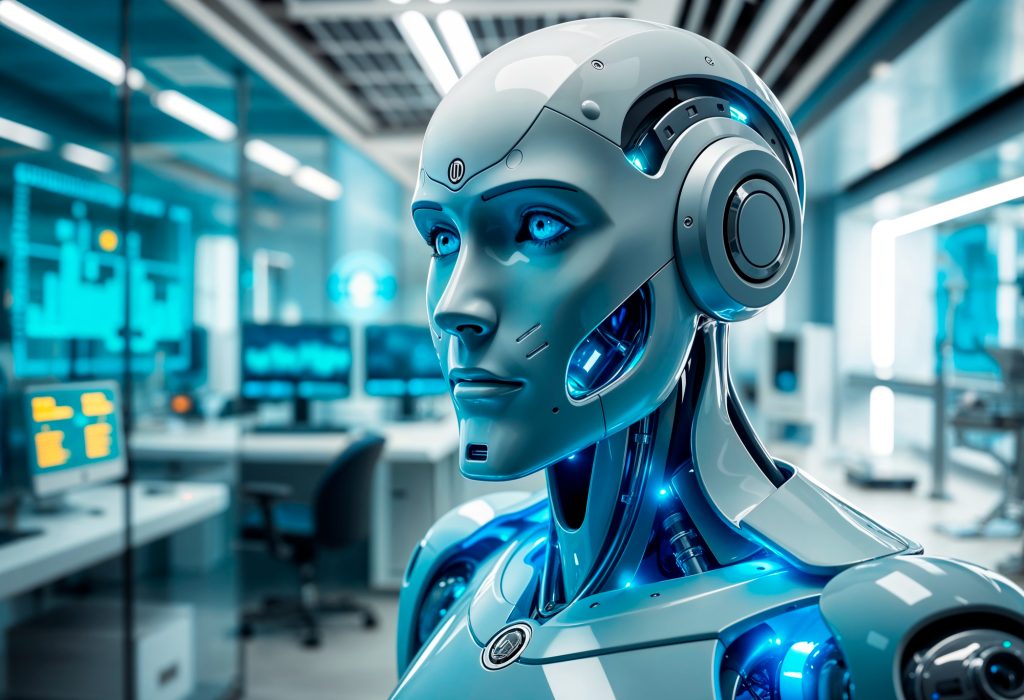Technology Vision 2025
At Technosurge, our Technology Vision 2025 research identifies this pivot as the central business challenge of the coming decade. The...

Technology Vision 2025
AI: A Declaration of Autonomy—Is Trust the Limit of AI’s Limitless Possibilities?
10-MINUTE READ | May 7, 2025
In Brief
-
A new era of autonomous AI is imminent, requiring leaders to prepare for systems that act independently on behalf of people and businesses.
-
This new autonomy for AI also redefines autonomy for people and systems, fundamentally reshaping our relationship with trust.
-
The full potential of AI will remain locked unless organizations can secure the necessary trust from employees and consumers to engage with its unprecedented capabilities.
We stand at the precipice of the next great digital shift. The conversation around Artificial Intelligence is evolving from one of assistance to one of autonomy. Leaders are no longer simply asking how AI can help; they are preparing for an imminent world where AI is everywhere, acting independently and making decisions on behalf of people. This declaration of autonomy promises to redefine industries, but it also introduces a critical, human-centric variable: trust.
At Technosurge, our Technology Vision 2025 research identifies this pivot as the central business challenge of the coming decade. The organizations that will thrive are those that understand this new autonomy isn’t just about technology—it’s about building a refined relationship with trust, empowering both systems and people, and navigating the immense possibilities and responsibilities that come with it.
Accelerating Autonomy with the Cognitive Digital Core
As executives race to implement generative AI and other advanced technologies, they must look beyond isolated projects and see the full scope of what they are building: integrated “Cognitive Digital Cores.” This is the intentional unification of AI efforts into a central nervous system for the enterprise. It hard-codes workflows, institutional knowledge, value chains, and social interactions into a system that doesn’t just understand—it acts with a higher degree of autonomy than ever before.
This core becomes the foundation for the four defining trends of the coming year, where autonomy, AI, and trust collide.
Emerging Trends of AI, Autonomy, and Trust
Our technology trends explore what happens when AI acts autonomously at the center of enterprise technology, represents your brand, inhabits robotic bodies, and collaborates with employees.
01: The Binary Big Bang: When AI Expands Exponentially, Systems Are Upended
As generative AI becomes the central engine of enterprise technology, we are witnessing a digital big bang. The cost of development and innovation is plummeting, giving rise to a universe of new systems and applications. Autonomous digital agents are becoming the new user interface, transforming applications from static tools into dynamic, proactive partners.
The Implication: The very fabric of our digital ecosystems is being rewoven. Companies must architect for this explosion of AI-native agents, ensuring their infrastructure is flexible and scalable enough to handle this new, autonomous reality.
02: Your Brand, in the Future: Differentiating When Every Interface is an AI
AI agents promise to personalize customer interactions at an unimaginable scale. But this power carries a paradox: if every brand uses similar underlying models, how do you prevent your customer experience from becoming generic? Your brand’s unique voice, values, and differentiators must be hard-coded into your AI’s DNA.
The Implication: Brand strategy and technology strategy are now inseparable. The autonomous AI interface is your brand. Protecting its unique personality and ensuring it acts in accordance with your core values is the new frontier of customer engagement and competitive advantage.
03: When Models Get Their Bodies: How Foundation Models Reinvent Robotics
The revolution is moving from the digital to the physical. Foundation models are breaking out of the cloud and being embedded into robotics. This endows machines with a generalist versatility, enabling them to understand natural language instructions, adapt to new tasks, and operate safely in dynamic human environments far beyond today’s highly programmed, repetitive use cases.
The Implication: The potential for productivity gains in manufacturing, logistics, and healthcare is staggering. Businesses must begin reimagining their physical operations and supply chains for a future of collaborative, intelligent, and adaptive robots that work alongside human teams.
04: The New Learning Loop: Defining a Virtuous Cycle of Learning, Leading, and Creating
The ultimate expression of autonomy is a symbiotic relationship between people and AI. When generative AI is diffused throughout an organization, every employee is empowered with the full intellectual capital and capability of the enterprise behind them. This creates a virtuous cycle: AI learns from human expertise and creativity, then amplifies that human capability, expanding the autonomy of both over time.
The Implication: The nature of work and leadership is changing. Success depends on fostering a culture of continuous co-learning, where humans guide AI strategy and ethics, and AI handles execution and analysis at scale, freeing people to focus on higher-order judgment, innovation, and connection.
The Trust Imperative
Underpinning all these trends is a single, non-negotiable currency: trust. Autonomy cannot scale without it. Opportunities will be lost unless business leaders can secure enough trust from employees and consumers to engage with AI’s unprecedented capabilities.
This requires a commitment to:
-
Radical Transparency: Demystifying how AI makes decisions.
-
Uncompromising Security: Protecting data and ensuring system integrity.
-
Ethical Governance: Building responsible AI frameworks that are designed for fairness and accountability from the ground up.
The age of autonomous AI is not a distant future—it is taking shape today. The question for every leader is: Will your organization be defined by this transformation, or will it be left behind by it?